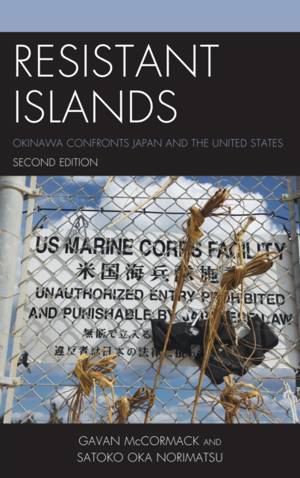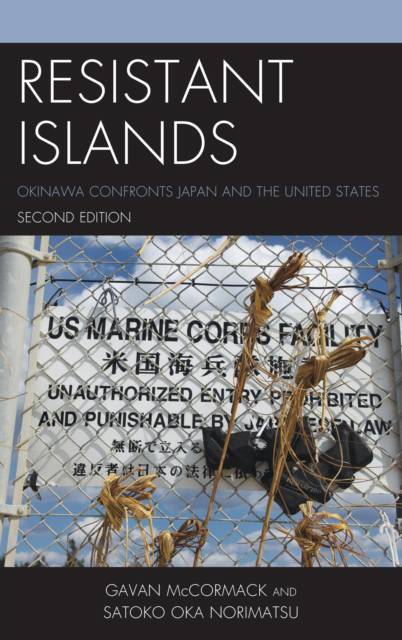
- Afhalen na 1 uur in een winkel met voorraad
- Gratis thuislevering in België vanaf € 30
- Ruim aanbod met 7 miljoen producten
- Afhalen na 1 uur in een winkel met voorraad
- Gratis thuislevering in België vanaf € 30
- Ruim aanbod met 7 miljoen producten
Zoeken
Resistant Islands
Okinawa Confronts Japan and the United States
Gavan McCormack, Satoko Oka Norimatsu
€ 60,95
+ 121 punten
Uitvoering
Omschrijving
Now in a thoroughly updated edition, Resistant Islands offers the first comprehensive overview of Okinawan history from earliest times to the present, focusing especially on the recent period of colonization by Japan, its disastrous fate during World War II, and its current status as a glorified US military base. The base is a hot-button issue in Japan and has become more widely known in the wake of Japan's 2011 natural disasters and the US military role in emergency relief. Okinawa rejects the base-dominated role allocated it by the US and Japanese governments under which priority attaches to its military functions, as a kind of stationary aircraft carrier. The result has been to throw US-Japan relations into crisis, bringing down one prime minister who tried to stop construction of yet another base on the island and threatening the incumbent if he is unable to deliver Okinawan approval of the new base. Okinawa thus has become a template for reassessing the troubled US-Japan relationship--indeed, the geopolitics of the US empire of bases in the Pacific.
Specificaties
Betrokkenen
- Auteur(s):
- Uitgeverij:
Inhoud
- Aantal bladzijden:
- 350
- Taal:
- Engels
- Reeks:
Eigenschappen
- Productcode (EAN):
- 9781442215634
- Verschijningsdatum:
- 8/03/2018
- Uitvoering:
- Paperback
- Formaat:
- Trade paperback (VS)
- Afmetingen:
- 150 mm x 226 mm
- Gewicht:
- 498 g

Alleen bij Standaard Boekhandel
+ 121 punten op je klantenkaart van Standaard Boekhandel
Beoordelingen
We publiceren alleen reviews die voldoen aan de voorwaarden voor reviews. Bekijk onze voorwaarden voor reviews.








